Are you navigating the complexities of injury compensation insurance? Whether you've experienced a workplace incident or a personal injury, understanding your rights and the claims process can feel overwhelming. But fear not! In this article, we'll break down the essential steps to create an effective injury compensation letter that will help you advocate for the support you deserve. So, let's dive in and empower you with the knowledge to take the next step!

Policy Details and Claimant Information
Injury compensation insurance policies play a crucial role in safeguarding individuals affected by accidents. Often linked to personal injury claims, these policies provide financial coverage for medical expenses, lost wages, and rehabilitation costs. Claimant information, including full name, contact details, and social security number, is essential for processing claims efficiently. Policy details encompass crucial elements such as the policy number, coverage limits, and the deductible amount. Providing accurate and comprehensive information is vital to ensure a smooth claims process, often conducted through insurance providers' specialized departments. Understanding the terms and conditions outlined in the policy can significantly impact the outcome of a compensation claim, highlighting the importance of careful documentation and timely submission of required materials.
Description of Incident
A sudden fall occurred on September 15, 2023, at the downtown shopping mall, Smith Plaza, located at 123 Main Street, that resulted in a severe ankle sprain. The incident transpired while navigating the slippery surface near the food court, which was inappropriately marked with inadequate warning signs despite previous incidents reported in the same area. Emergency medical services arrived shortly after, documenting the injury and providing immediate first aid. Subsequent medical evaluation revealed a grade II sprain, necessitating a recovery period of four to six weeks, along with physical therapy sessions to restore mobility. Related costs, including hospital bills and rehabilitation expenses, should be considered in the compensation claim.
Medical Treatment and Documentation
Proper medical treatment following an injury is essential for recovery and compensation claims. Documentation of all medical visits, including the attending physician's notes, diagnostic tests, treatment plans, and receipts for medications is crucial for substantiating your claim. Medical records should detail the nature of the injury, such as a broken bone or soft tissue damage, and any prescribed therapies like physical therapy sessions or rehabilitation programs. Accurate records will enhance the credibility of the claim when submitted to insurance adjusters, who evaluate cases based on thorough evidence. Maintaining a detailed log of symptoms experienced over time can further support the claim, demonstrating the injury's impact on daily life and work, which is a critical factor in determining compensation amounts.
Financial Losses and Expenses
A letter template for injury compensation insurance focuses on detailing financial losses and expenses incurred due to an accident or injury. This document serves as an essential tool for claimants seeking reimbursement for medical bills, rehabilitation costs, lost wages, and other economic hardships. Clear itemization of expenses, supported by receipts and documentation, strengthens the case for compensation. The template should include sections for personal information, policy details of the insurance provider, and a comprehensive account of all related financial impacts. Accurate descriptions of both direct medical expenses, such as hospital fees, and indirect costs, like transportation to treatment, enhance the clarity and effectiveness of the claim.
Request for Compensation and Contact Information
Injuries sustained in workplace accidents often lead to financial burdens due to medical expenses and lost wages. Individuals requiring compensation often approach insurance companies to recover these costs. Essential information includes the claim reference number, accident date, location (such as workplace address), and medical reports detailing the injuries experienced. Accurate details, such as employer contact information and any witness statements, can bolster a compensation request. Timely submission of the claim, typically within 30 days of the incident, aligns with many insurance policies and increases the likelihood of a favorable outcome.

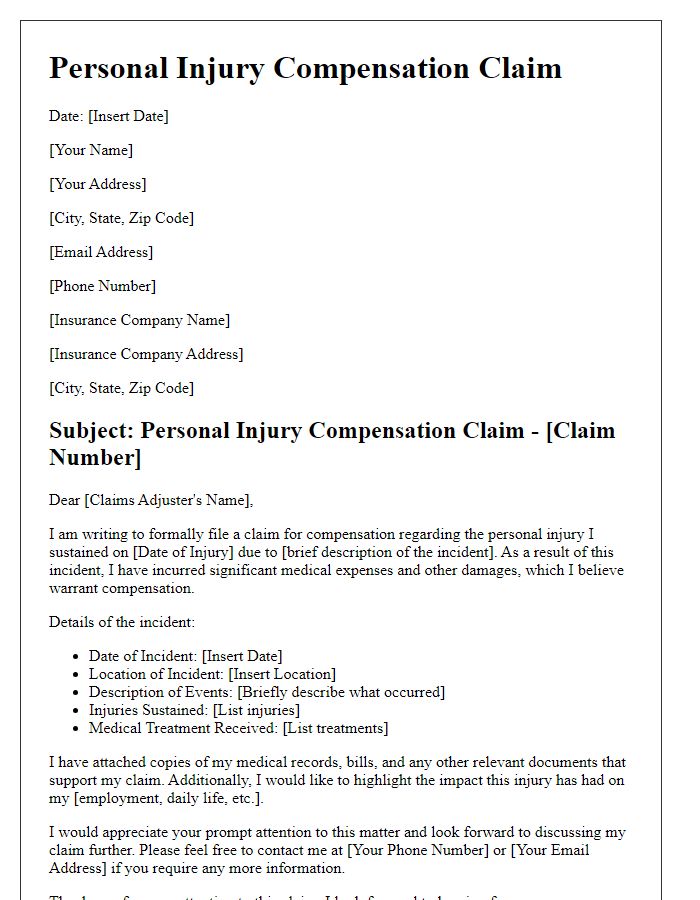
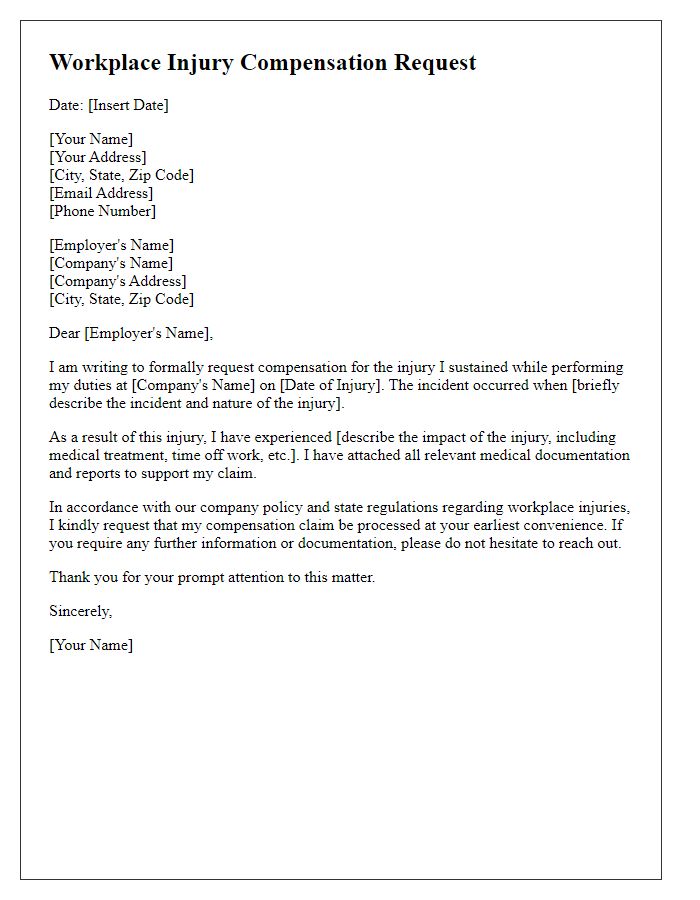
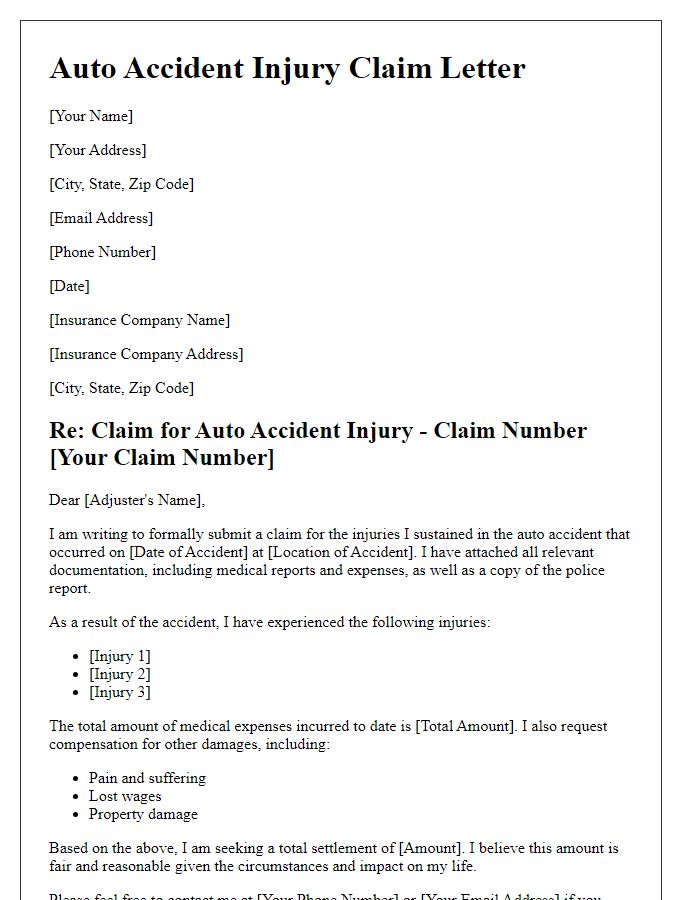
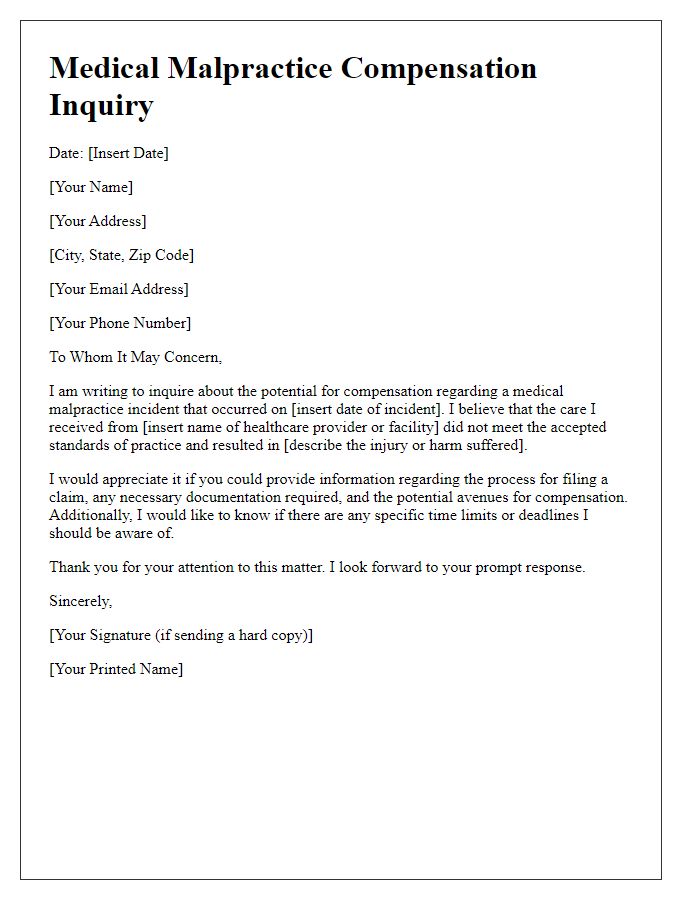
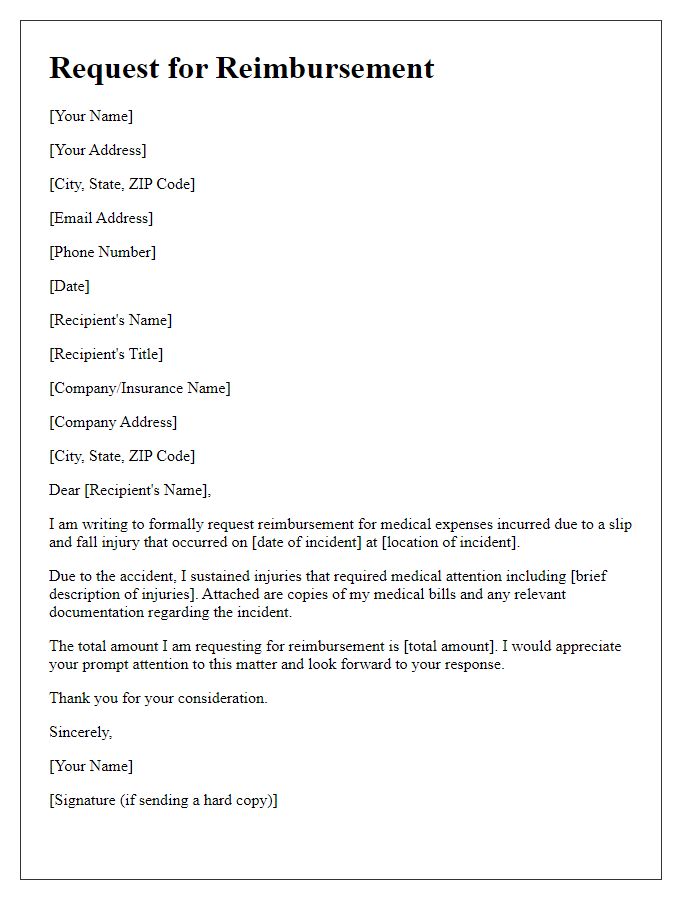
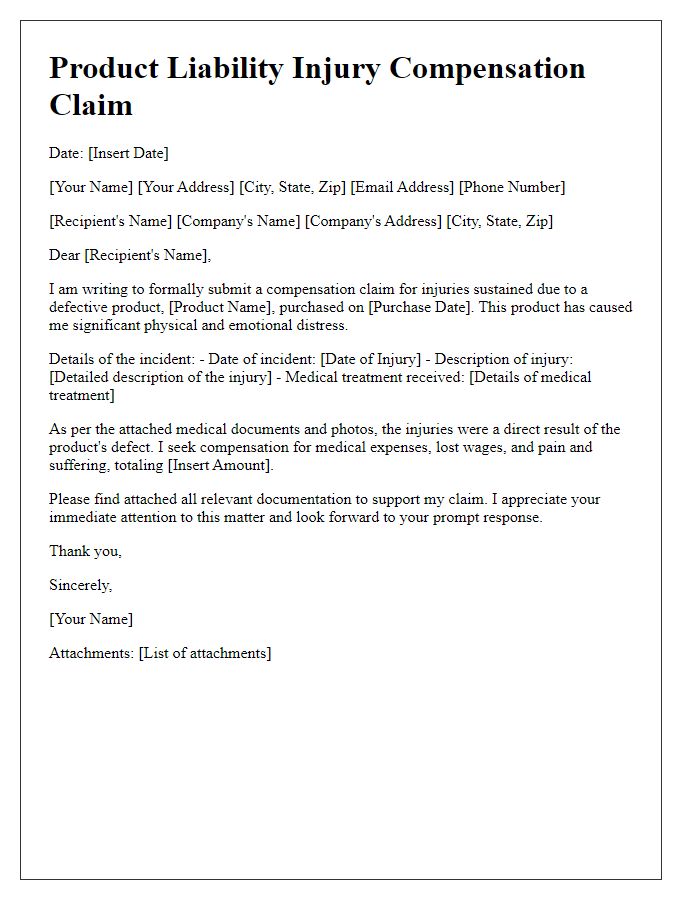
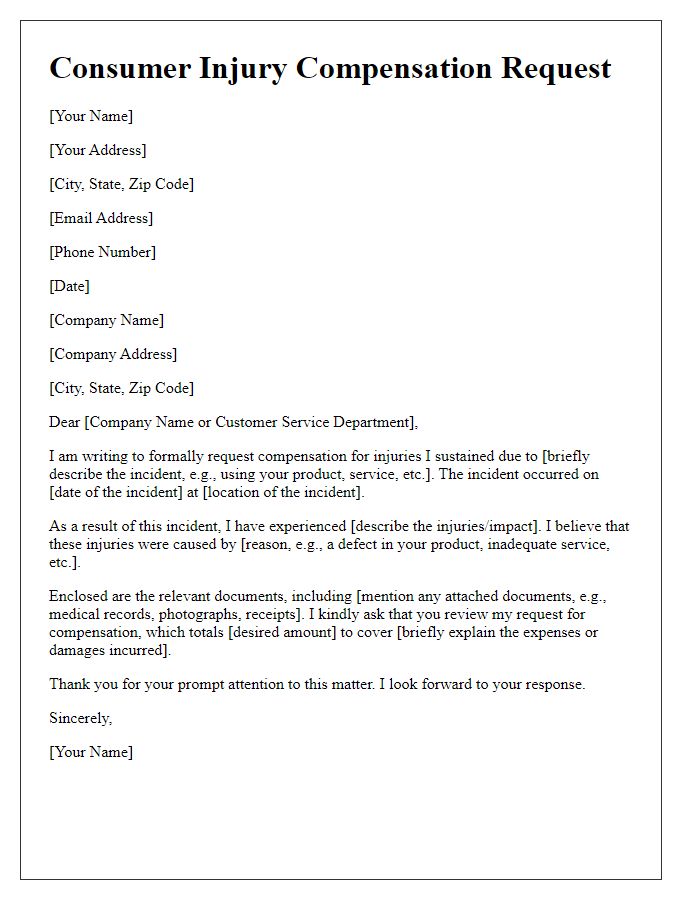
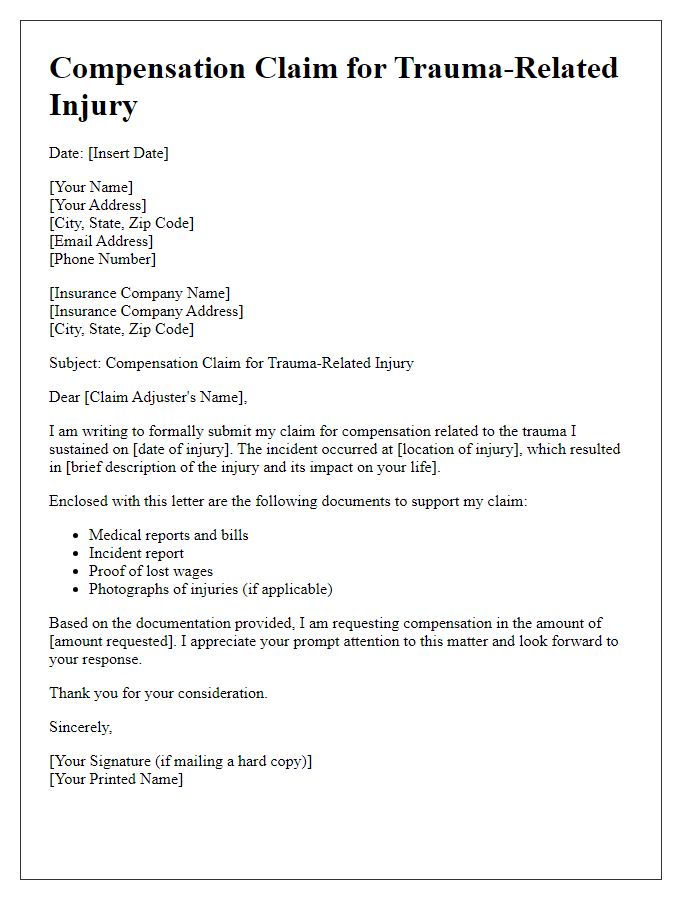
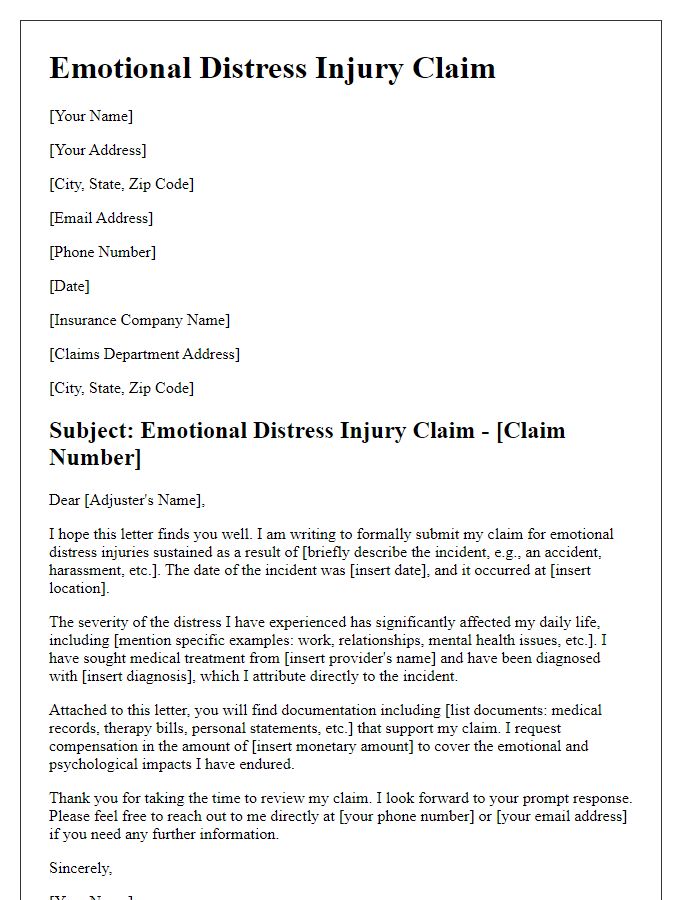
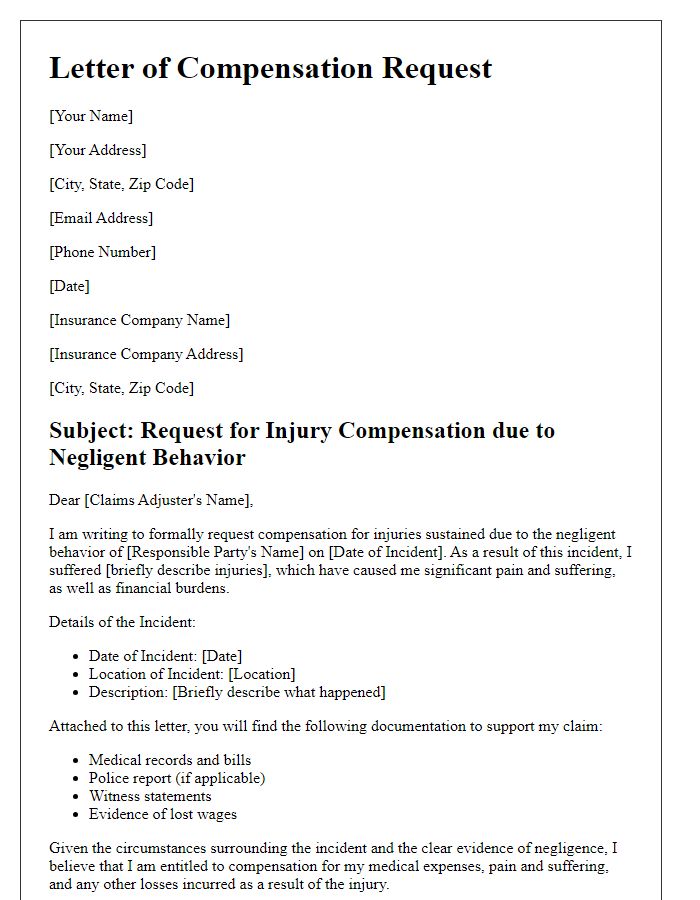


Comments